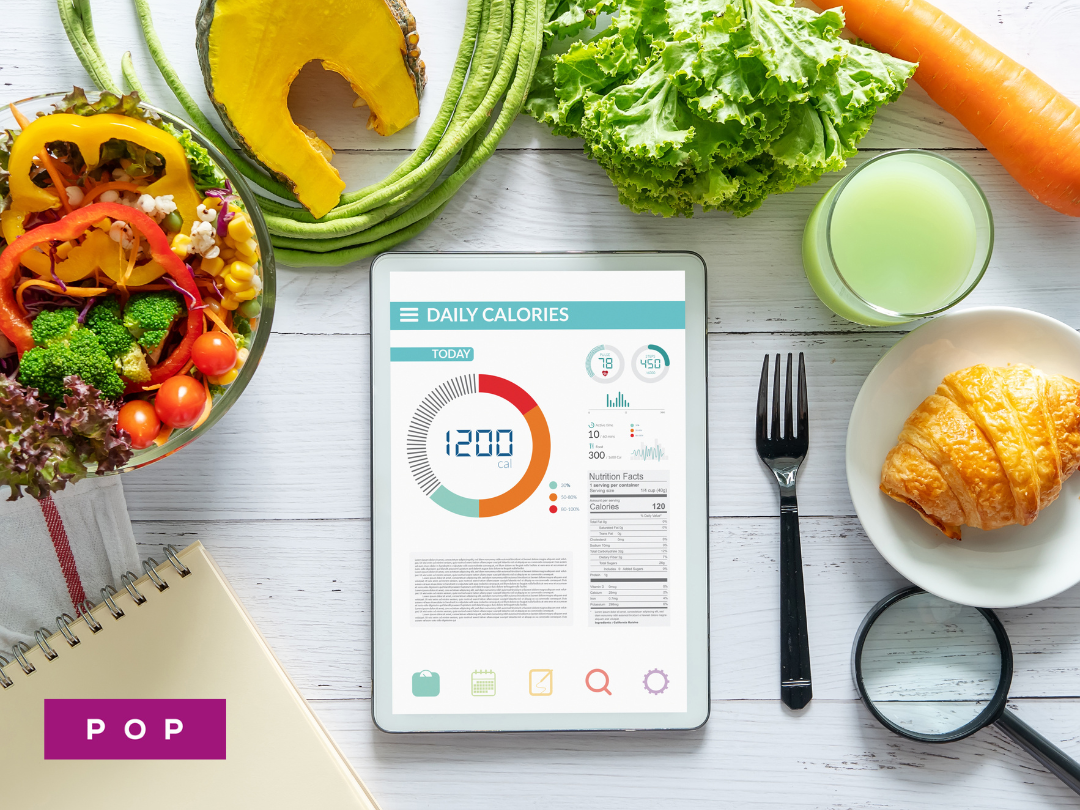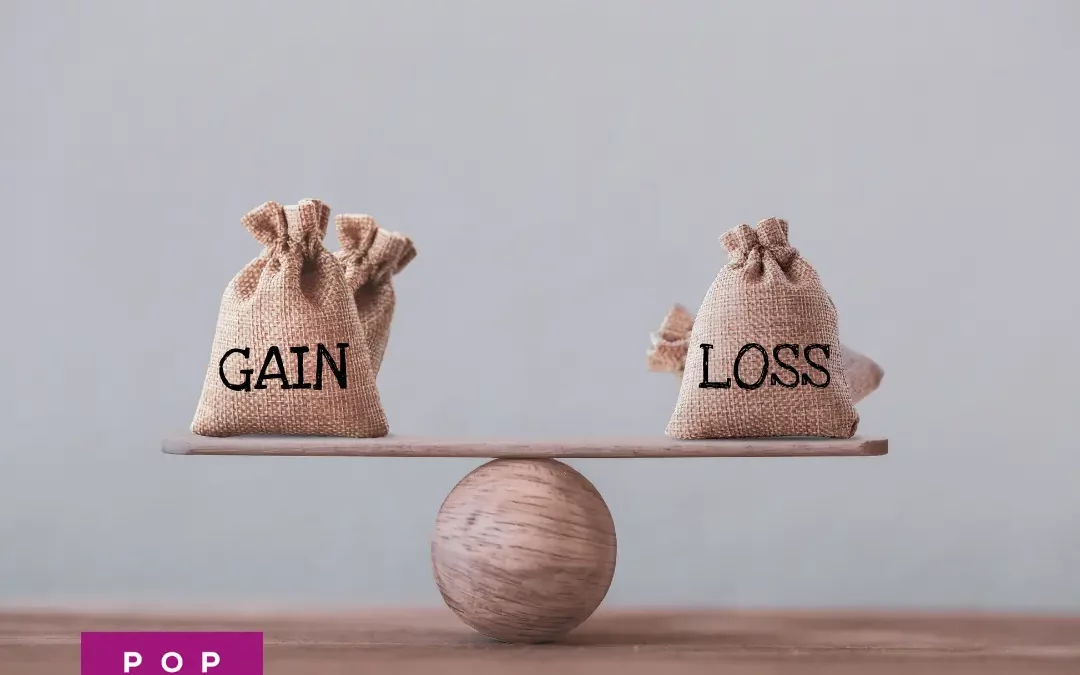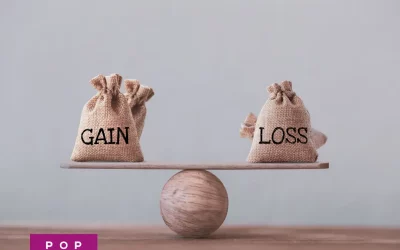Tracking and calorie counting works …
Until it doesn’t.
In my experience, there are 3 common issues when it comes to counting calories.
Three problems with calorie counting
1. You have no idea where to start.
2. You have no idea if your current plan is the right plan for you.
3. You were making progress but then your results came to a screeching halt and you have no idea why.
If you’re struggling with any of the above, you’re going to want to buckle up and take this ride with me.
Before we dissect each of these common issues, the first question we must answer is …
Should you even be calorie counting at all?
Or better yet …
Why should you or shouldn’t you track calories?
That can only be answered if you know what you want.
It’s a preference based question.
Should I put ketchup on eggs??
Well, if your objective is to make the eggs taste way better … then yes.
If you want a bland egg … then no.
Now, your preference may be different than mine so you may feel the opposite about the whole ketchup on eggs thing.
The same logic applies to calorie counting.
Calorie counting vs. not counting calories is based on preference.
Is your preference to lose body fat?
Do you want to achieve a certain body composition goal?
Are you trying to get healthier? More fit?
Do you want your clothes to fit better? Do you want to look better naked? Do you want to get stronger?
These are all preference based … like ketchup on eggs.
If yes, you’ll probably want to delve into the world of calorie counting for at least a short period of time.
Why?
Calorie counting can help with eating awareness.
Because it’s kind of important to have some awareness over how much you’re eating and what you’re eating on a regular basis.
Do you want to save or invest more money?
If yes, you probably need some awareness around how much you’re making and spending.
Calorie counting is just like budgeting.
It’s not the only way to budget … but it’s certainly the most specific.
If your preference is to create a healthy lifestyle that you can do forever, and you don’t believe that calorie counting fits into that equation … that’s totally fine.
For most people, it’s a means to an end. Not something you have to do forever.
Also, let’s not forget that it’s a spectrum.
Calorie counting doesn’t have to be all or nothing.
You don’t have to choose between tracking every single morsel of food and tracking absolutely nothing.
There’s a lot of middle ground.
In fact, we’ve found that most of our clients thrive in the middle.
At this point, we’ve helped 1,000s of individuals completely change their body composition and improve their relationship with food while creating a lifestyle they feel confident living forever.
We’ve had clients lose over 100 lbs. We’ve had clients lose a few pounds but completely transform their body composition. And we’ve had everything in between.
And what I can say is … most of those results happened by finding the middle ground that worked for each individual.
Remember, this is a preference based game we’re playing.
Anyway, creating awareness on how much you’re eating and what you’re eating on a regular basis is super helpful when you have fat loss, strength, performance, physique, or health goals.
We also know you don’t have to do it forever. And we also know you don’t have to be all or nothing with it.
Now that we’ve covered the fundamentals, let’s get into the specifics.
Where do you start with tracking calories?
The first problem that comes up with individuals who understand that they have body composition goals and are ready to dive into tracking calories is …
Where do I start??
It’s a great question.
The problem with most programs or calculators is that they have no understanding of where you are right now.
In other words, they give you a starting point based on where they think you SHOULD be right now.
But that’s a complete guess.
That would be like hiring someone to help with your budget and they ASSUME you’re making 100k per year but you’re actually only making 75k.
Any online calculator or fad diet program is going to throw out a starting point that will likely be the same exact starting point for every single person that is close to your age, weight, height, activity level.
This is part 1 of the calorie counting conundrum.
Your body doesn’t care what should be. Your body only cares what is.
The starting point is not the same for everyone.
Let’s say you’re eating 3,000 calories per day and then you sign up for a cookie cutter macro program and they prescribe 2,000 calories per day.
They may assume your maintenance is 2300 calories so they’re trying to give you a modest deficit to help you lose body fat.
Instead, they’re giving you an extreme deficit and adding more stress to your system.
That typically doesn’t end well.
Or let’s say you’re only eating 1400 calories per day and they prescribe 2,000 calories per day.
They think they’re giving you a modest deficit, when in reality they’re giving you a surplus.
You start to gain weight and get all pissed off then go back to what you were previously doing.
That also doesn’t end well.
The answer to problem number 1 is simple.
Where do I start??
Start exactly where you are.
Don’t change a thing when you are first starting. Just eat how you normally eat and track it.
Figure out how much you’re eating on an average weekly basis. The key words here are “average weekly basis.”
What you do in a single day is largely irrelevant. We want averages over time.
Once we know where you are right now, only then can we decide where you should go.
If you’re consistently over eating and food quality is poor then we can take small steps in the right direction.
We can find ways to gradually improve quality. We can slowly but surely reduce quantity.
If you’re consistently under eating, we can gradually get your calories up. We can slowly but surely alleviate the stress of always being in a calorie deficit which will work wonders for your hormonal profile and your metabolism.
There is a little more tactical information that goes into a precise starting point but what I just covered should be enough.
Certain things like your diet history, metabolic state, Neurotype, current habits, mindset, etc. will play a role. But let’s keep things simple here.
Many people just blindly follow a plan without considering their own personal preferences.
Big mistake.
And it often leads to problem #2 …
How do I know if the plan I’m following is right for me??
The reason this is such a common issue is because most programs only base their success on a couple of metrics.
Is the scale going down? Are you getting leaner?
In fact, I’ve signed up for a bunch of programs myself to see how they work and do some market research.
Often times, it’s as simple as … “Oh, your weight was the same this week and your goal is fat loss … let’s lower your calories.”
In many cases, that process is completely automated so you don’t even have the luxury of a human assessment.
In other cases, it is a human but basically a human that’s trained to be a robot.
I used to work for a company that operated this way and if someone’s weight wasn’t going down, we’d click one button and it would auto populate a message. Then we’d lower their calories.
That was “coaching,” apparently.
So … we understand that simply looking at your weight and your measurements is not the only way to judge whether the plan is right for you.
More importantly, we need to assess biofeedback.
It’s almost like your body tells us what’s working. Crazy how that happens.
Biofeedback tells us what’s working and what isn’t.
We assess things like hunger signals, energy levels, sleep quality, digestion, mood, recovery, sex drive, cravings, etc.
And yes, we also look at metrics like scale averages, measurements, and progress pictures.
Then there’s the most integral part of it all …
How does this fit within your lifestyle?
“Well, I can follow this plan but it requires me to completely ignore my family and basically be a hermit for the rest of my life.”
Ok cool … this current plan is not the right plan for you.
I don’t care how quickly you’re making progress. If you have to put your life on hold to make it work … it will not last.
Once you’ve got yourself a plan that IS the right fit for you … that often leads us to problem #3.
My plan was working great! But all the sudden it stopped working and now I’m stuck! WTF.
This is inevitable.
What happens when your plan stops working?
Your body is an adaptation machine. Its main function is survival.
In order to keep you alive, your body adapts to the signals you send it.
If you send the signal that not enough energy is coming in (aka you’re under eating or eating in a calorie deficit) …
Your body will adapt by down regulating your metabolism to delay starvation.
Don’t you wish it was as simple as finding a single plan that works and then riding that out forever?
Yeah, me too.
Unfortunately, it doesn’t work like that.
Instead of getting frustrated, just remember that it’s your body doing what it’s designed to do.
So just be grateful that your body wants to keep you alive :).
Anyway, what do we do about this problem?
We act in accordance with how your body adapts.
Progress comes in phases.
We operate in phases. We don’t always pursue fat loss. We focus on other goals like habit building, strength, muscle, maintenance, balance, moderation, flexibility, relationship with food.
We spend short and focused phases of attacking fat loss and then shift gears to make sure your body feels safe.
We do that by fueling for strength and muscle. We do that by establishing quality habits. We do that by mitigating stress.
When you understand this concept going into the process … you won’t be frustrated at plateaus.
In fact, most of our clients never actually experience a true plateau.
Because we always ensure that we’re prioritizing metabolic health so that they can continue to make progress long term.
It makes maintaining their results so much easier and more effective.
And it allows them to still enjoy life throughout the process.
Want to learn how to maintain your results for life?
The best part about our coaching program is that it’s entirely preference based and personalized so there’s no such thing as “this doesn’t work for me.”
On average, our clients lose around 20-30 lbs in 6 months and acquire the tools to keep their results for life.
We don’t require hours of cardio (in fact, we’re often team little to no cardio).
We don’t require obsessively tracking every morsel of food (as I said above, most of our clients thrive in the middle).
And we certainly don’t require starvation or very low calories (most of our clients actually get leaner by eating more).
If you’re struggling with where to start OR you don’t know if your current plan is right for you OR you were making progress but now you’re stuck …
And you’re interested in finally achieving your body composition goals while being able to maintain those results for life …
Simply click this link : https://calendly.com/pop-3/consult
We’ll have a quick chat to make sure you’re a good fit for what we do. And if we both decide it’s a good fit, we can get started right away.







